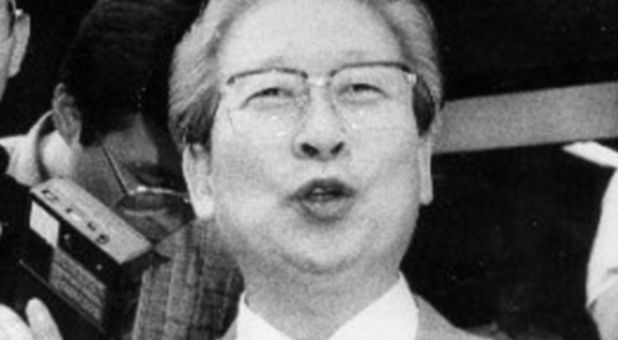South Korea Ferry Businessman’s Cause of Death ‘Impossible to Determine’
South Korea’s forensic agency said on Friday it was impossible to determine the cause of death of a businessman linked to a ferry that sank and killed 304 people in April, deepening the mystery surrounding the final days of Korea’s most wanted man.
An autopsy and DNA tests on the badly decomposed body of Yoo Byung-un revealed no evidence that he was poisoned, and there was also no indication of external trauma, forensic agency chief Seo Joong-seok told a news conference.
Yoo, 73, was found dead in an orchard on June 12 after eluding authorities for nearly two months in South Korea’s biggest manhunt, hiding behind the wall of a rural cabin in the final days while it was being searched.
Police identified his body only this week, 40 days after a farmer reported its discovery at his orchard, stirring a storm of public anger with what many said was incompetent work to arrest Yoo over the ferry disaster.
“We are aware there are many questions and did our best, but it was impossible to determine the cause of death,” said Lee Han-young, a senior official at the forensic agency.
“It is possible in some cases involving decomposed bodies to determine the cause of death but, in Yoo Byung-un’s case, there was simply too much tissue damage so it was difficult to find leads that can determine the cause of death,” he said.
The autopsy found no evidence of trauma from a weapon or strangulation, although there was heavy decomposition damage to the tissues in the head and neck, Lee said.
Yoo headed the family that owned the operator of the ferry, Sewol, which capsized and sank on April 16 on a routine journey. Many of those killed were children from the same school on a class trip. The disaster triggered outrage across South Korea, especially when video footage emerged of crew members abandoning ship while the children stayed in their cabins as instructed.
The Sewol’s 15 surviving crew members, including the captain, are on trial on charges ranging from negligence to homicide.
Yoo was wanted on charges of embezzlement, negligence and tax evasion but managed to elude authorities in what became a political headache for President Park Geun-hye, whose government came under heavy criticism for its handling of the disaster.
Son Captured
Later on Friday, Yoo’s elder son, Yoo Dae-gyun, who was also wanted on suspicion of embezzlement, was captured in an apartment near Seoul, prosecutors said. His capture follows the arrests of several other family members, including the senior Yoo’s wife and brother.
Yoo Dae-gyun is one of two sons who co-owned the holding company at the center of a network of business interests that included the ferry operator. But he was not believed to have been as actively involved in management as his younger brother, who is believed to be in the United States.
Kang Shin-mong, a forensic expert at the Catholic University of Korea’s School of Medicine, said after the forensic agency’s announcement it was possible Yoo died of hypothermia, citing his age and a history of diabetes.
Weather records showed temperatures in the region where his body was found dipped to 12 degrees Celsius (54 degrees Fahrenheit) at night in late May and early June.
The failure by the national forensic agency to determine how Yoo died, and how his body arrived at the spot where it was found, is likely to add pressure on authorities to arrest two close associates accused of aiding his flight.
A senior prosecutor who headed the investigation resigned on Thursday, claiming responsibility for botched moves that allowed Yoo to remain at large for so long.
Three police officers, including the provincial chief of the region where his body was found, were sacked this week.
Writing by Jack Kim; Editing by Paul Tait and Robert Birsel
© 2014 Thomson Reuters. All rights reserved.
















































